The Foods Secretly Stashed With Sugar
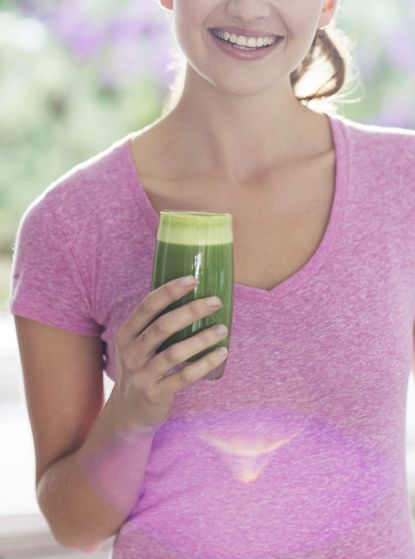

We bring you the foods you would never imagine were secretly packed with high levels of the sweet stuff.
We all feel virtuous after drinking a fruit-packed smoothie or juice, but are these increasingly popular health drinks actually adding inches to your waistline?
Although smoothies can help increase your consumption of fruit and veg, it’s easy to just throw several ingredients into a blender without exercising portion control, which could do more harm than good.
The optimum ratio for ingredients is 50% liquid, 25% fruit and 25% vegetables. To decrease the sugar in a smoothie, choose nut milks or coconut water as your base instead of fruit juice.
Another way to keep sugar levels down is to stick to one serving of fruit (e.g. one apple), and avoid too many natural sweeteners like dates and honey. Load up on veggies - they’re full of vitamins, minerals and fibre, but with far less sugar than fruit.
Keep the pulp from the fruit and veg and this will slow down the rate of sugar absorption into the bloodstream.
Sugar may taste delicious but the side effects of over-eating the sweet stuff can have huge implications on our general health, weight and skin - not to mention all those cavities it causes in our teeth.
Sign up for the woman&home newsletter
Sign up to our free daily email for the latest royal and entertainment news, interesting opinion, expert advice on styling and beauty trends, and no-nonsense guides to the health and wellness questions you want answered.
Sticking to the World Health Organisation's recommended 25gram daily allowance could help us to combat the side effects of eating too much sugar, whilst still allowing ourselves a little treat from time-to-time.
But what if we didn't realise the foods we were eating everyday actually contained high-levels of sugar hidden away inside?
Many diet food products, cereals and sauces shockingly contain several teaspoons of added sugar to enhance the flavour.
Read on to find out what other foods have a secret stash of sugar to up the flavour...
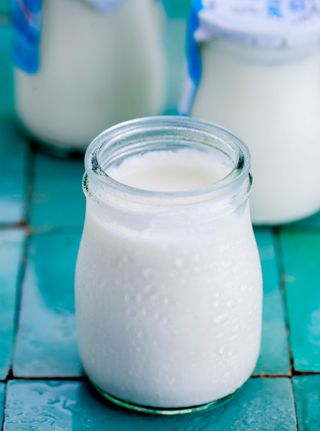
Yoghurt
Yoghurt, especially the fruity kind, contains a huge serving of our recommended daily allowance. Low fat and diet brands, as well as everyday yoghurt brands, are guilty of adding in the naughty extra ingredient, some with as much as 19g per pot! A delicious alternative is to buy plain, greek yoghurt and adding in your own fresh fruit. This cuts out all the processed sugars and tastes just as good, if not better!
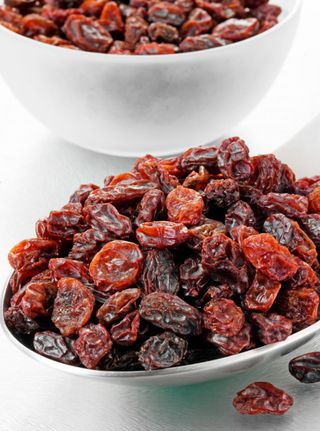
Dried Fruits
A packet of raisins or dried, mixed fruit may seem like a healthy snack but it's got a nasty secret. A 50g packet can have as much as 24g of sugar packed inside. And this isn't all from the fruit - most brands, including some health food brands, add in extra sugar as a second ingredient. Next time, why not reach for the fresh alternative instead for a natural energy boost.
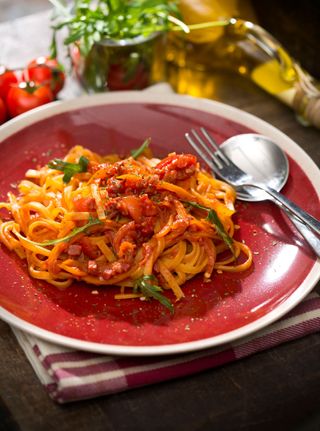
Pasta Sauce
It's a quick and easy meal after a long day that everyone loves, pasta with a nice helping of tomato sauce straight from the jar. But the frightening truth is that 65g of tomato sauce contains, on average, 12g of sugar. That's nearly three teaspoons hidden away in your dinner. Cook up a batch of homemade sauce at home, such as this tomato and porcini recipe, and freeze or refrigerate it for the week ahead so a quick meal is still achievable without the added sugar.
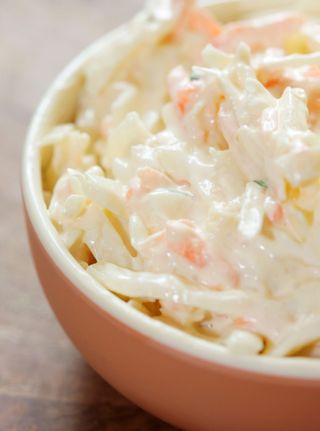
Coleslaw has been deceiving us with it's healthy looking appearance. The shredded vegetable dish is actually laden with added sugar when purchased pre-made from the supermarket. 50g of coleslaw can have as much as 4g of sugar hidden inside the mayonnaise, which means two big spoonfuls on your plate contains two hidden teaspoons of added sweetness. Next time, make it at home from scratch with none of the added sugar. Try our winter slaw recipe as a healthy alternative to the shop bought stuff.
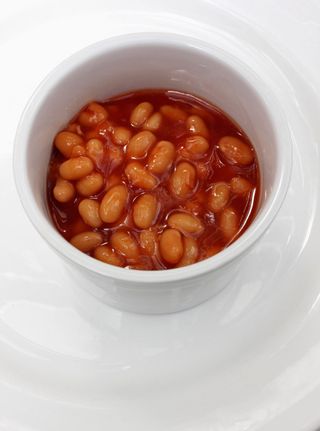
Baked Beans
The majority of canned backed beans, from your favourite brand to the supermarket's own, contain a huge amount of added sugar. One can, on average, has three teaspoons tucked away inside, that's 12 grams of your daily allowance. The sugar is added to the sauce to enhance the flavour, but the taste is not worth the health risks. Try whipping up your own version of baked beans at home, like these delicious Homemade Boston-style baked beans.

Jennifer Kyte is an experienced editor and writer specialising in women's lifestyle and celebrity interviews. She has worked for national publications both in the UK and Australia for the last 15 years covering everything and anything from royal, celebrity, health, and real life to major news events.
-
 M&S has the dreamiest white summer dress just like Kate Middleton's
M&S has the dreamiest white summer dress just like Kate Middleton'sPrincess Kate's Zimmerman summer dress has long been discontinued - but M&S have just dropped a rival piece that looks so similar
By Charlie Elizabeth Culverhouse Published
-
 What year is Blue Lights set in and where was it filmed?
What year is Blue Lights set in and where was it filmed?Blue Lights is back for another season...
By Jess Bacon Published